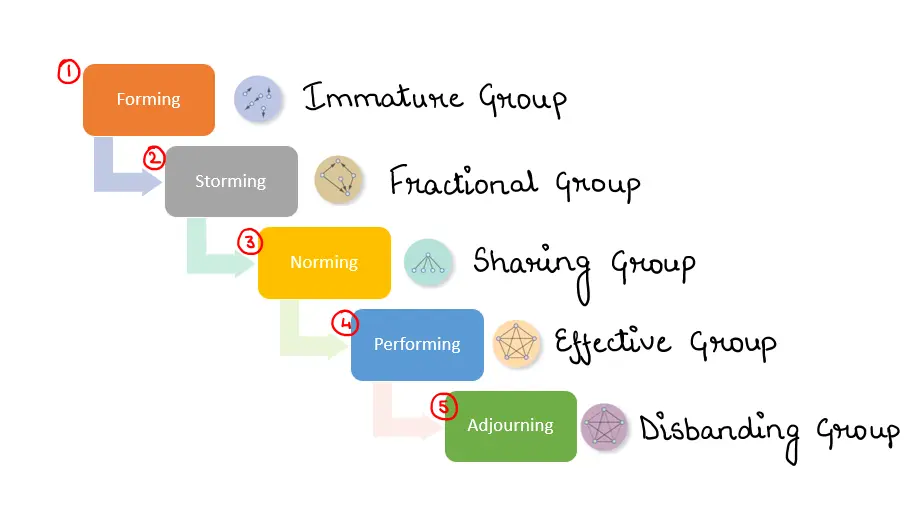IBPS SO HR - Study Material and Coaching Classes
As you are preparing for the IBPS SO HR 2025 exam, you have 2 options of preparing with Human Peritus.
Get in touch for 1 day free trial to see how everything looks like. Call Now 9717781110 or Chat Now Whats app
* Make sure to read all FAQs before Payment
2 - includes online Quiz & Mocks
-
6 Printed Books- couriered at home
-
Online e-Books on LMS
-
6000 practice questions- online
-
5 Fresh Mock Tests-online
-
Doubt Clearing System- 1 day response time
* Make sure to read all FAQs before Payment
3 - includes Coaching
-
6 Printed Books- couriered at home
-
Online e-Books on LMS
-
6000 practice questions- online
-
5 Fresh Mock Tests-online
-
Doubt Clearing System- 1 day response time
-
Video Classes- recorded
-
Ongoing Live Classes
* Make sure to read all FAQs before Payment
Scan QR code to Chat

Email: contact@humanperitus.com
Phone: 9717781110
Address: Human Peritus, Floor 5, Building C, Unitech Cyber Park, Gurgaon, 122002
FAQs- Must Read before you enroll
Following 6 Printed Booklets will be couriered:
1. Business Management and Organizational Behaviour
2. Human Resources Management
3. Labour Laws Part-1
4. Labour Laws Part-2
5. Industrial Relations
6. Labour Welfare
We have a robust system for clarification of doubts.
You can ask your doubts not only via text, but also via a photo of handwritten paper, or voice note or even a video. Just ensure that the teacher is able to understand, what you are asking.
All doubts will be answered within 1 working day.
If you want to prepare with self study with 100% coverage of syllabus- Choose option 2.
If you want to cover syllabus in shorter time with assistance of video classes- Choose option 3.
In terms of coverage, Option 2 provides 100% coverage of the syllabus. However, the probability of selection is significantly higher with video classes for several reasons:
(i) Many topics necessitate conceptual clarity (like labour laws, OB, Indian Logic), which is more effectively imparted by a teacher.
(ii) With a teacher’s guidance, the preparation time is reduced to 40% of the time required without one, making it faster for you.
Although 100% of the course syllabus is covered in recorded video classes, we also continuously conduct live classes.
If you are enrolled in Option 2, you will receive the class schedule every Friday, detailing the upcoming classes for the following week. You are welcome to attend these live classes.
You can also cover the syllabus through recorded video classes. If any doubts arise, feel free to make use of the doubt clearing facility.
The Learning Management System (LMS) is accessible via the browser on any desktop, laptop, tablet, or mobile device. However, for optimal learning, it is advisable to use a desktop or laptop. Please note that only one login is allowed at a time.
Access to LMS will be for 1 year from the date of payment.
The fee mentioned on the website is final and it includes 18% GST, courier charges and everything else. Beyond it, there are no discounts.
Any attempt of illegal circulation of content will lead to immediate termination of access to all resources and the fees will not be refunded.
Any attempt to sell Human Peritus content on social media/internet will invite police complaint and subsequent FIR under various provisions of law given below:
- Section 63 of Copyright Act 1957 (knowingly infringes or abets the infringement of the copyright)
- Section 420 (cheating by the way of false representation) under sections 403, 406, 408, 420, 471 and 120-B of Indian Penal Code 1860 for dishonest and illegal misappropriation of money, criminal breach of trust, cheating, fraud and criminal conspiracy to commit fraud
- Section 29, 103 and 104 of Trade Marks Act 1999 (infringement and penalty)
- Section 1(2) read with Section 75 of the Information Technology Act 2000.
Depend Completely Upon us
From Start To Finish
Human Peritus is one stop solution for everything, which you need to crack IBPS SO HR.
- Market Leader in HR and Labout Laws in India
- Concise printed booklets
- Trusted guide for other exams too like HR officer in PSUs, UPSC ALC

FAQs- Good to read
Yes, it is true that the IBPS has not disclosed any syllabus for the SO HR exam. Thus, neither there is any official syllabus, nor anyone has access to any previous years papers.
We, at Human Peritus, have been analysing questions every year (memory based by speaking to our students). This year’s wise analysis is also given below.
Based on analysis of previous years’ papers, we came to the conclusion, the syllabus of UGC NET HRM covers all the topics, which are asked in IBPS HR exam. In fact IBPS HR requirements are a subset of coverage from the syllabus of UGC NET HRM.
Thus, every year, we advise our students to cover all keywords from the syllabus of the UGC NET HRM Code 55. Till now, this strategy has worked well and we are hopeful that it will work in Jan 2023 also for IBPS SO HR. Thus, our plan for IBPS SO HR is to cover all syllabus of UGC NET HRM. This syllabus has been given below.
Following questions were asked from the paper held on 30 Jan 2022:
Collective Bargaining types,
Mines Act 1952 – Age for hazardous work
Maternity Benefit Act 1961- Minimum umber of days required to get the benefit
Employee Compensation Act 1923- Relevant factor
Industrial Disputes Act, 1947- Conciliation process
Payment of Wages Act, 1936– Definition of wages
Minimum Wages Act, 1948- Definition of Fair Wage, Living wage
Payment of Gratuity Act, 1972- 5 years limit
Trade Union Act, 1926- Minimum number to form TU
Factories Act, 1948- 1 question
Code of Wages has which labour acts included
Article 15
Theories of labour welfare
Approaches to IR- System approach
Methods of HR forecasting- Delphi
Worker participation in Management
Strike and Lockout
Big 5 model of personality
HR Interventions
Types of Training
Sensitivity training
SHRM
Job rotation
Job enlargement
Job Analysis
Intelligence tests, Aptitude tests
Career Anchors, Career Path
Seasonal employment- Payment of Gratuity
Geocentric and Polycentric approaches of HR
Mc Lellend theory of motivation
Max Weber theory of Management
Calculation of overtime wages
Hidden knowledge – Tacit Knowledge
Marginal productivity- labour market
External and internal recruitment comparison
List of Tripartite organizations
No questions were asked from the following Labour Laws
Child and Adolescent Labour Act, 1986- no question
Contract Labour (Regulation and Abolition) Act, 1970- no question
Building and Other Construction Workers Act, 1996- no question
Inter-state Migrant Workmen Act, 1979- no question
Employees’ State Insurance Act, 1948- one question
Unorganised Workers’ Social Security Act, 2008- no question
Employees’ Provident Funds Act, 1952- no question
Industrial Employment (Standing Orders) Act, 1946- no question
Questions were asked from the following topics in the paper on 25 Jan 2020:
Employee’s Compensation Act, 1923 Industrial Disputes Act, 1947 Payment of Wages Act, 1936 Minimum Wages Act, 1948 Maternity Benefit Act, 1961 Payment of Bonus Act, 1965 Payment of Gratuity Act, 1972 Employees’ Provident Funds Act, 1952 Trade Union Act, 1926 Factories Act, 1948 Mines Act, 1952 Employees’ State Insurance Act, 1948
From IR, the questions were from expected topics like Collective Bargaining, ILO, Strikes, Lockout, Layoff, Grievance Management, developments in MoLE.
Again expected questions from HR and OB like, difference between recruitment and selection, performance appraisal, compensation, succession planning, HR accounting, HRD, career planning, stress management, Theories of management (name of thinkers), Communication, decision making, learning, leadership etc.
Questions were NOT asked from following Acts in Jan 2020:
Child and Adolescent Labour Act, 1986 Contract Labour (Regulation and Abolition) Act, 1970 Building and Other Construction Workers Act, 1996 Inter-state Migrant Workmen Act, 1979 Unorganised Workers’ Social Security Act, 2008 Constitutional Provisions for Labour Welfare Equal Remuneration Act, 1976 Industrial Employment (Standing Orders) Act, 1946 Code of Wages, 2019
The list of questions, which were asked in 27 Jan 2019 exam, is given below.
HR Demand forecasting, Job analysis, Job evaluation, Staffing, Aptitude tests, Stress interview, methods of performance appraisal, HRIS, MBO Gagne Brigg theory, Leadership theories (2 questions), 2 questions on training methods, Difference in Grievance and Disciple, Strike in Industrial Disputes Act, Theories of IR, Theories of Trade Union, Labour market, Frictional unemployment, Arbitration, Few questions on factories act, Superannuation, Dismissal in Industrial Disputes Act, ERG theory, Needs’s theory, Wild cat strike, more questions on Industrial disputes Act. BARS Cost of living Index Retrenchment Code of Conduct Wage Differentials Exchange theory
Some of the reasons, why you should consider us are:
1. Human Peritus is “uniquely positioned” to assist you for the IBPS SO HR exam. We have been trusted guide to students for last 10 years for various HR/Labour laws based exams like IBPS, UPSC ALC, UGC NET HRM (Code 55), UPSC EPFO, HR officer with Banks and PSUs etc.
2. We do not just teach, we take responsibility for the outcome. After every exam, we analyze, how many questions came from our course. We publish this analysis on the website. Then we improve our course. Then again analyze after the next next exam and improve the course..and so on….By doing it over the years, we have reached a stage, where consistently more than 80-90% of questions are from our course.
3. We have consistently maintained a high quality of teaching in video classes. The classes are not just 30,000 feet overview, but with detailed conceptual understanding. Do not just believe us. Take some trial classes with others. Then check our classes. Compare the style and quality of teaching. You may also check few recorded classes in the middle of this page.
4. Not only we teach well, we also take responsibility, if it is sufficient from coverage point of view. With us, you need not study any other book. You also need not look at previous papers. Not even current affairs. Nothing else. You are unlikely to get this confidence of “depend completely on us”, anywhere else.
5. And yes, thousands of students have realized their dreams with Human Peritus since the year 2011. You can check video interviews of hundreds of them by clicking here.
From a coverage point of view, the Study Material will give you 100% coverage, but the probability of selection is much higher (4 times) in video classes program, because of the following reasons:
(i) a Large number of topics require conceptual clarity, which will need a teacher to make it easier, like Labour Laws, OB Theories.
(ii) With tips and tricks, the teacher makes it easier to remember.
(iii) If it takes x hours to prepare without a teacher, then it will take only 0.4x hours with a teacher. Since time for IBPS HR exam is limited, you need someone to make it quicker for you.
(iv) You get into discipline because now someone else is pushing you towards completion of the syllabus (this is the biggest contributor)
(v) While teaching, the teacher explains how questions are framed from a given topic.
Syllabus of IBPS SO HR exam
First thing, the IBPS has never disclosed any syllabus for SO HR exam. Based on analysis of previous years’ papers of IBPS SO HR, we came to the conclusion, the syllabus of UGC NET HRM covers all the topics, which are asked in IBPS HR exam. In fact IBPS HR requirements are a subset of coverage from the syllabus of UGC NET HRM.
Thus, every year, we advise our students to cover all keywords from the syllabus of the UGC NET HRM Code 55. Till now, this strategy has worked well and we are hopeful that it will work in Jan 2023 also for IBPS SO HR. Thus, our plan for IBPS SO HR is to cover all syllabus of UGC NET HRM. This syllabus has been given below.
Although there is no explicit mention of following acts in the syllabus, you need to study them, as well:
- Employee Compensation Act 1923
- Unorganized workers Act 2008,
- Maternity Benefit act 1961
- ESIC Act 1948
Principles and Practices of Management: Development of management Thought,
- Contributions of Taylor, Fayol, Mayo, Mary Parker Follett and C.I. Barnard.
- Behavioural Approach,
- Systems Approach,
- Quantitative Approach and
- Contingency Approach.
- Function of Management: Planning and Decision Making, Organising, Staffing, Directing, Controlling, Coordinating.
- Human Resource Management: Conceptual framework,
- Job Analysis, Human Resource Planning
- Recruitment, Selection,
- Placement, Induction,
- Training and Development,
- Performance Management,
- Job Evaluation,
- Compensation Management,
- Employee Benefits and Incentives,
- Managing Career.
- New Trends in HRM: Changing environment of HRM and ontemporary challenges, Emerging HRM Concepts.
Human Resource Development (HRD): Concepts, Assumptions, Values,
HRD Mechanisms, Action – research Model,
HR Accounting and Audit,
Consultant – client relationship,
Knowledge Management,
Human Resource Information System.
International Human Resource Management (IHRM): Organisational context of IHRM,
IHRM and Sustainable Business,
Functions of IHRM,
HRD Culture and Climate, HRD Interventions,
Cross – Cultural Studies, Cultural Diversity,
Transnational Organisations,
IHRM models.
Organisational Behaviour: Concept, Scope, Nature of human behavior,
Personality,
Perception,
Learning,
Attitude,
Motivation,
Interpersonal Behaviour,
Group Dynamics,
Leadership,
Communication,
Power and Authority,
Stress,
Organisational Change and Development.
- Industrial Relations: Concept, Scope, Evolution, Approaches, Actors and Models,
- Conflict and cooperation, Bi-partitism, Tri-partitism,
- Collective Bargaining,
- Workers’ Participation in Management,
- Grievance Handling and Disciplinary Action, Code of Conduct,
- Employers’ organisations.
- Trade Unions: Concepts, Evolution,
- Problems of trade unions in India, Recognition,
- Industrial Relations in changing scenario,
- The Trade Unions Act, 1926.
- Emerging role of trade unions in India.
Industrial Disputes: Factors, Forms, Trends,
Prevention and Settlement, Role of State and Central Labour Administration,
The Industrial Disputes Act, 1947,
Strikes and Lockouts,
The Industrial Employment (Standing Orders) Act, 1946.
- Labour Legislation: Objectives, Principles, Classification and Evolution.
- International Labour Organisation,
- Social Justice and Labour Legislation,
- Indian Constitution and Labour Laws.
- The Factories Act, 1948.
- Mines Act, 1952.
- The Inter-state Migrant Workmen (Regulation of employment and conditions of service) Act, 1979.
- Contract Labour (Regulation and Abolition) Act, 1970.
- The Building and other Construction workers (Regulation of employment and conditions of service) Act, 1996.
- Child Labour (Prohibition and Regulation) Act, 1986.
- Wages: Concept, Types, Factors influencing wages, Wage Theories and Wage Differentials
- The Minimum Wages Act, 1948.
- Payment of Wages Act, 1936.
- The Payment of Bonus Act, 1965.
- Equal Remuneration Act, 1976.
- Payment of Gratuity Act, 1972.
- Employees’ Provident Fund and Miscellaneous Provisions Act, 1952.
Labour Welfare: Concept, Scope, Types, Theories and Principles,
Industrial Health and Hygiene,
Occupational Diseases
Industrial Accidents and safety,
Social Security: Concept and Scope, Social Assistance and Social assurance.
- Labour Market: Features,
- Demand and Supply of Labour,
- Nature and Composition of Indian Labour Force,
- Unemployment and Underemployment,
- Types of Labour Market,
- Characteristics of Indian Labour Market,
- New Dynamics of Labour Market in India,
- Economic Systems and Labor Market,
- Problems of Labour in India.


